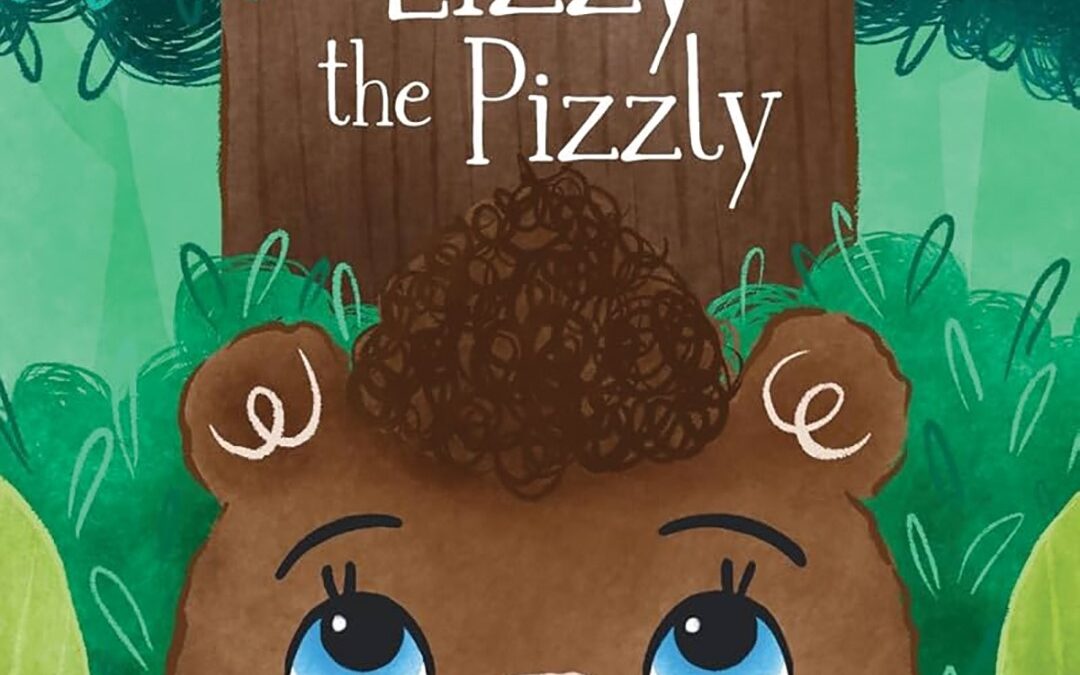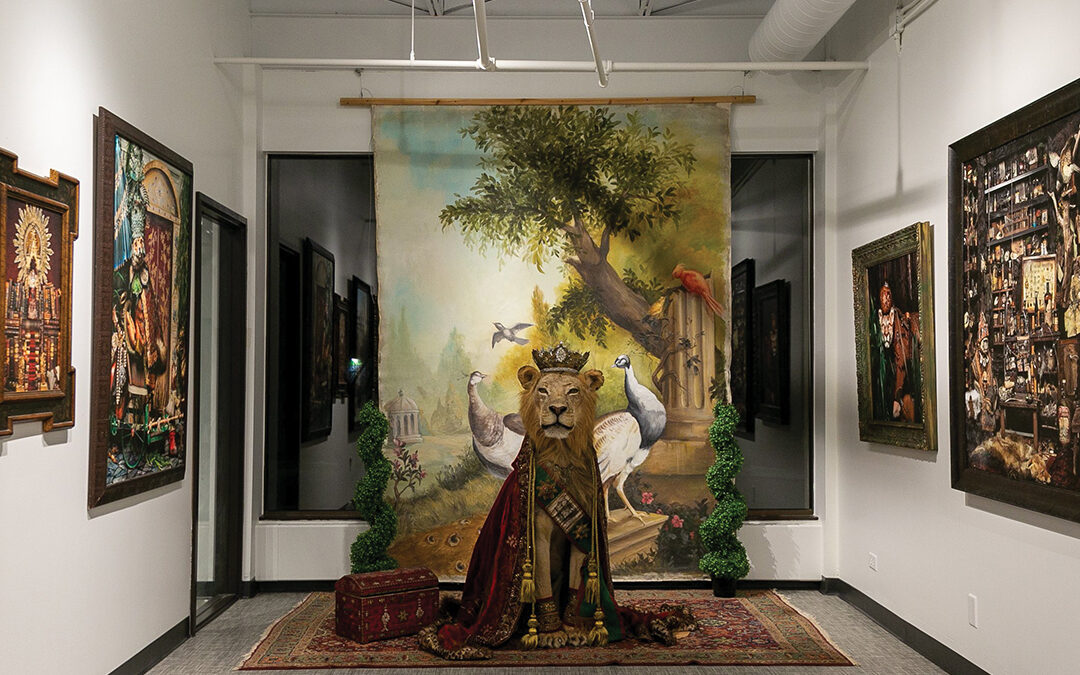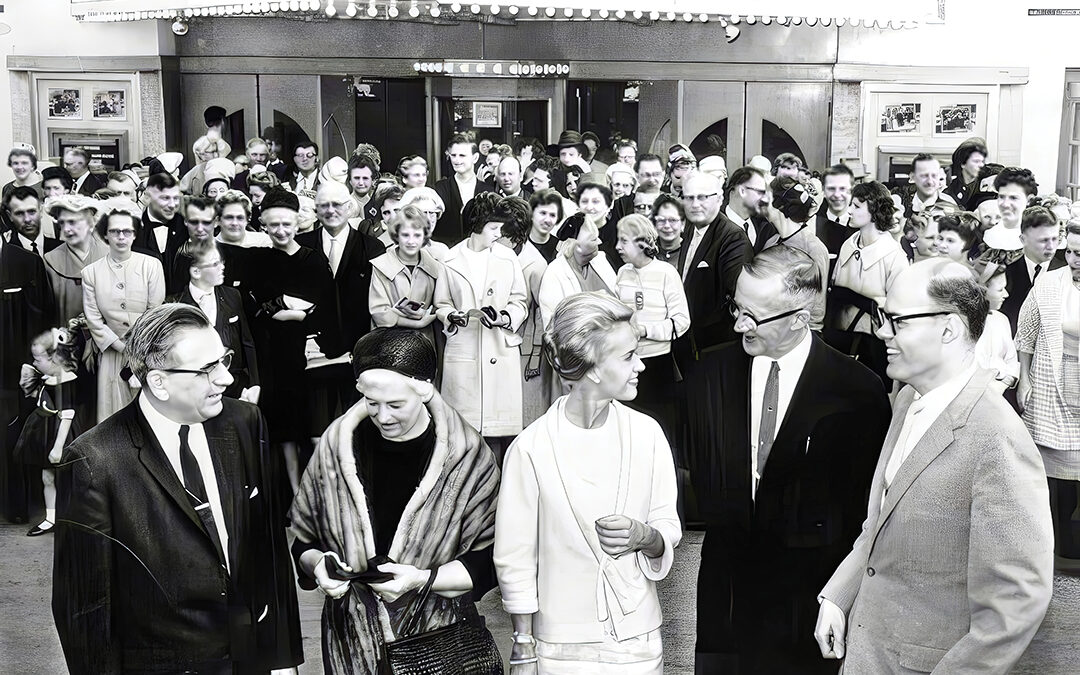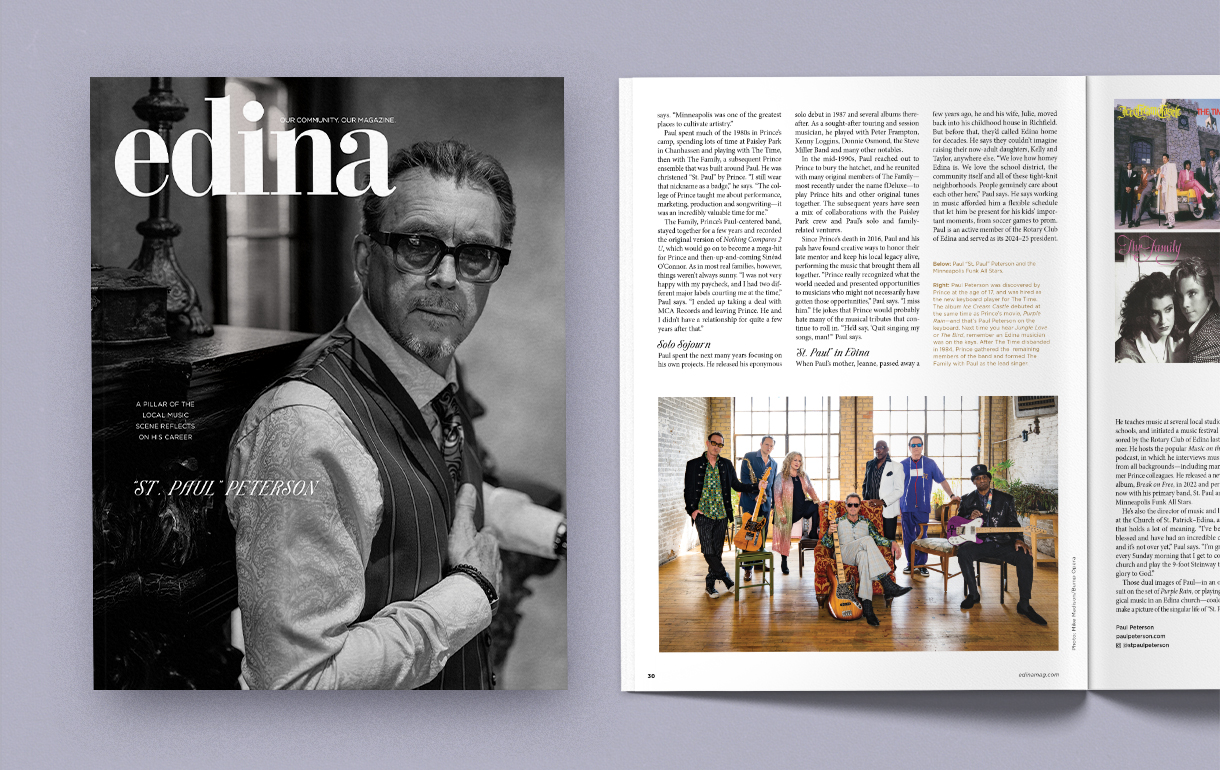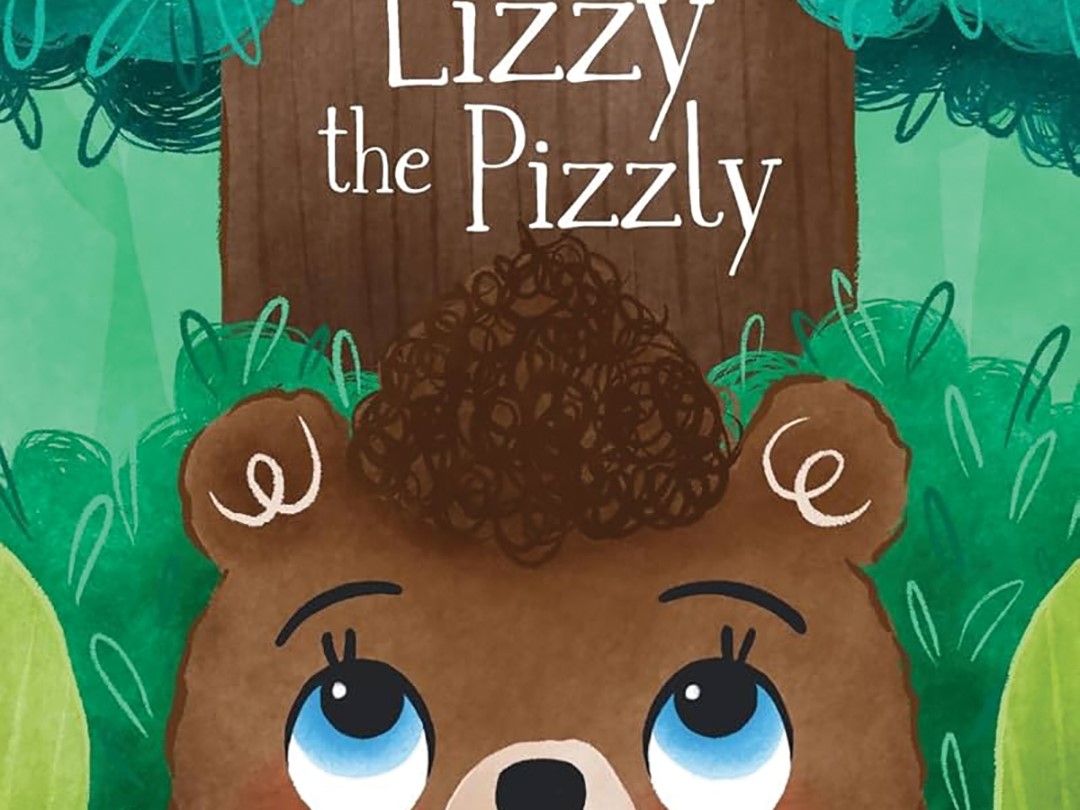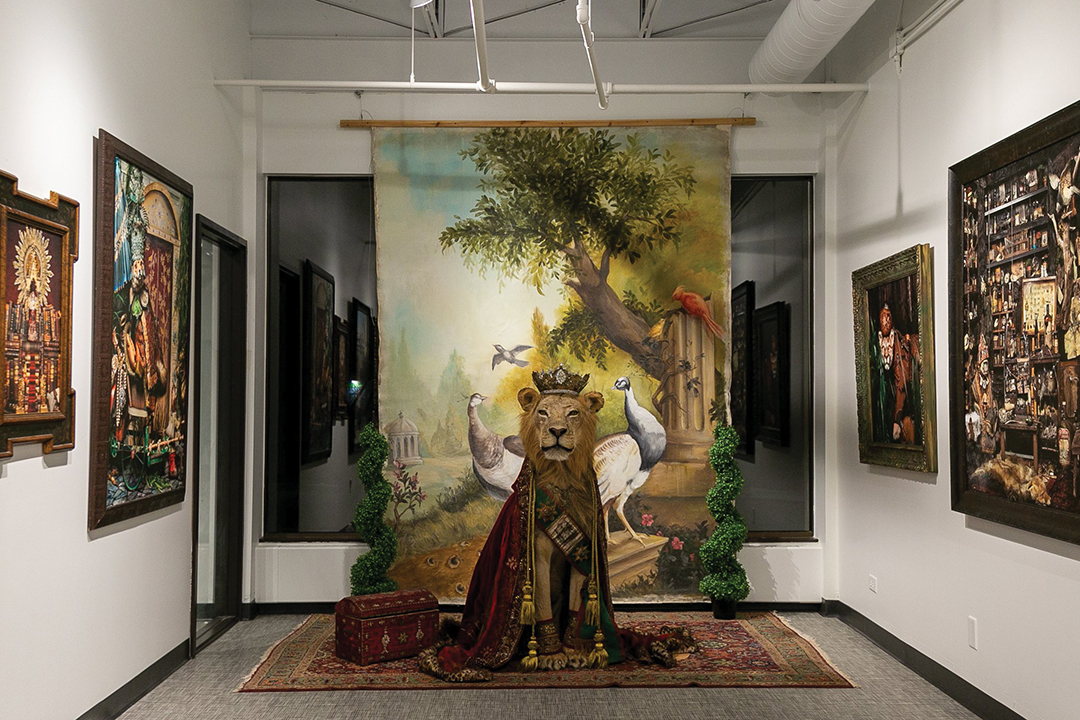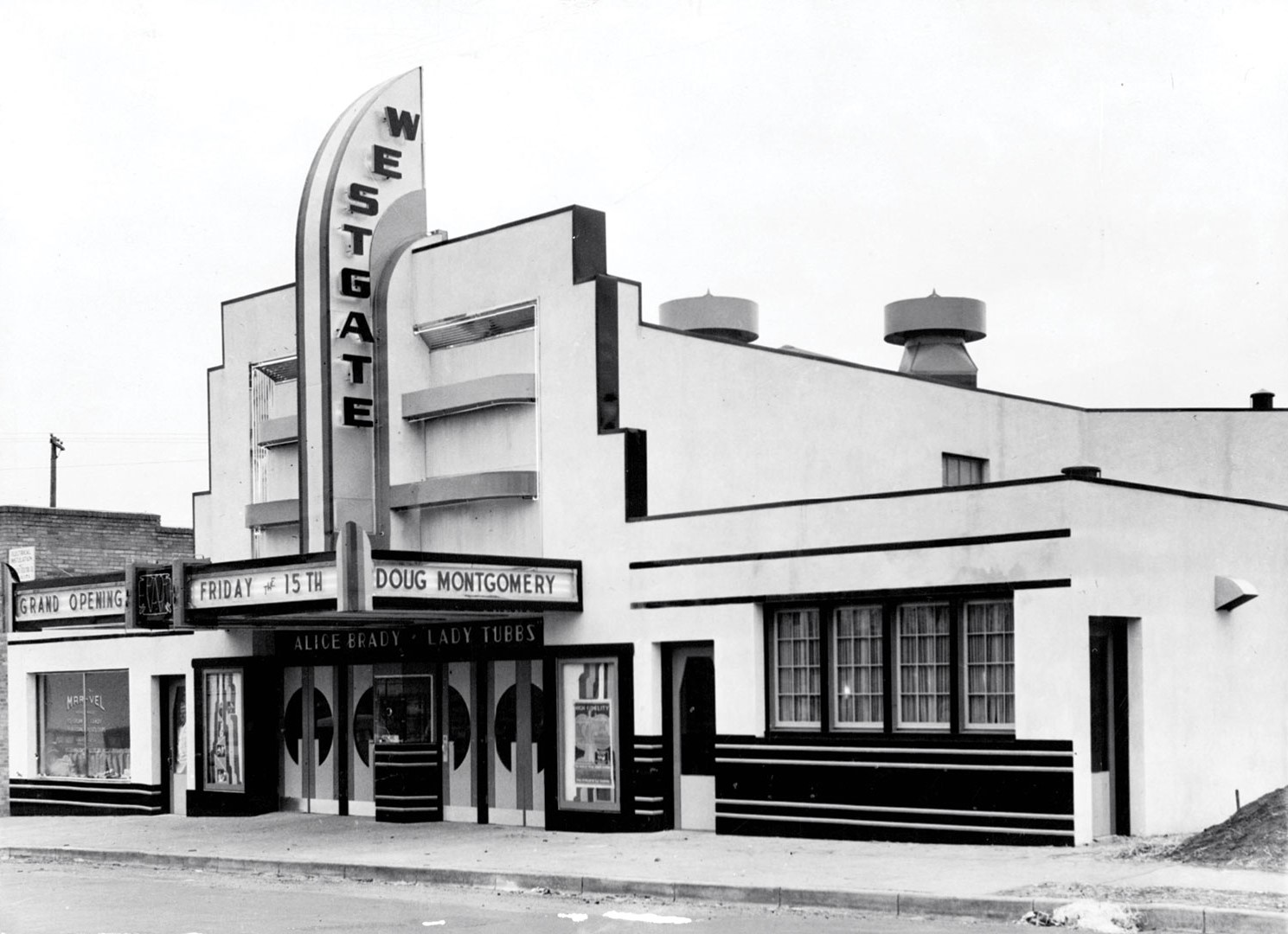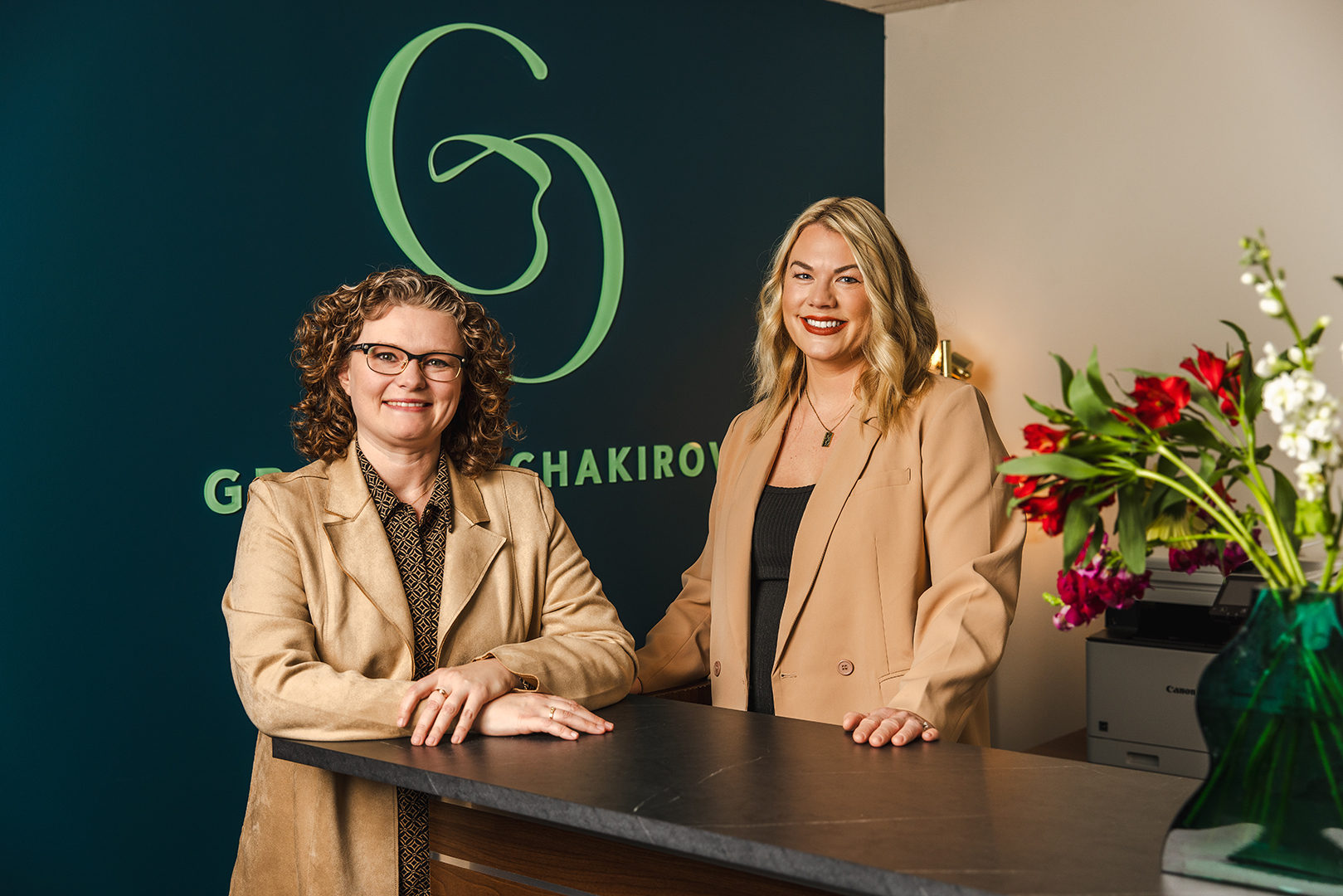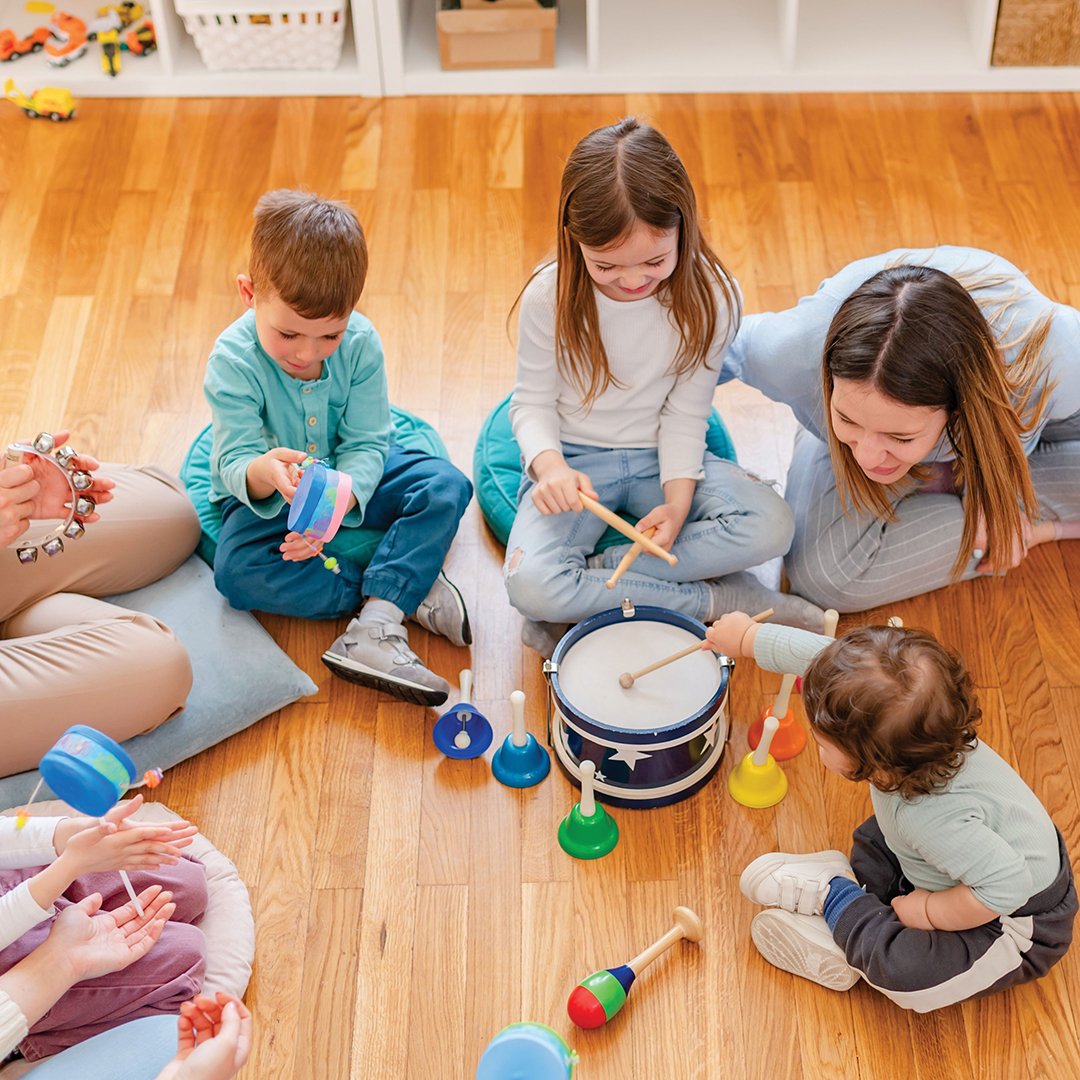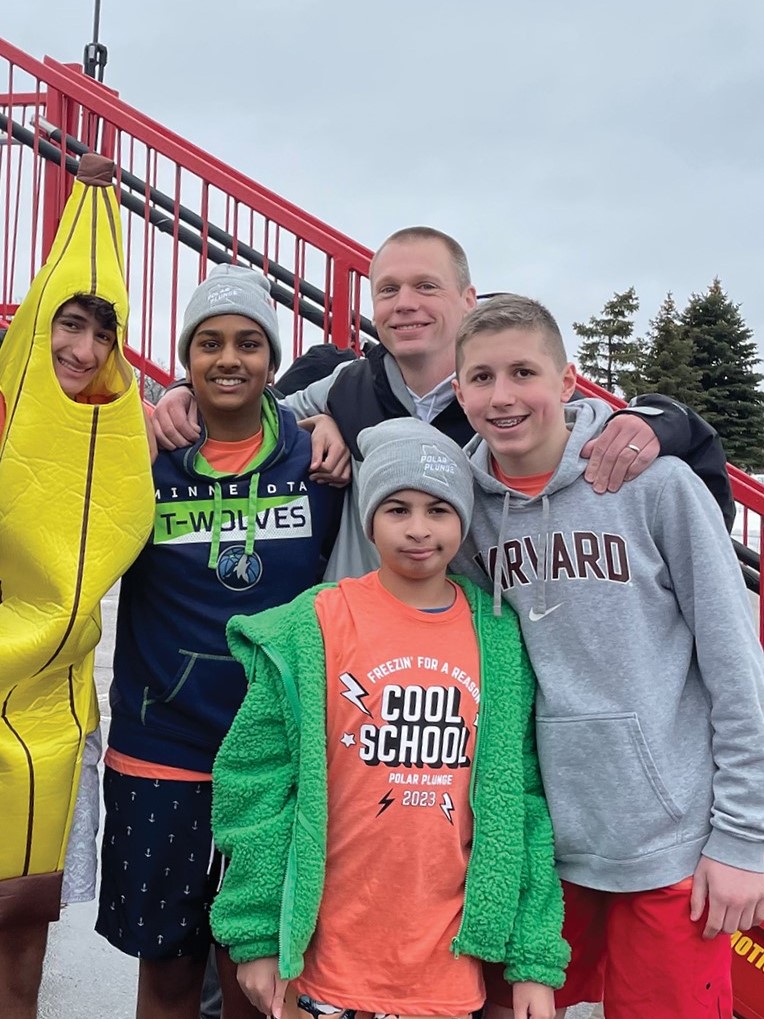
VVMS at the 2023 Polar Plunge held annually at SVMS. Left to right: Rishi Shah, Varin Sinha, paraprofessional Daniel Mauer, Aidan Mehta and Alex Allocco. Photo: Brooke Allocco
Programs and resources help children and adults with autism find belonging, build skills and pursue their interests.
If you visit a Unified class in an Edina school, you’ll see friends chatting or working on homework. Maybe you’ll catch a basketball game in the gym or spy actors running their lines in a theater class. These classes—at Edina High School, Valley View Middle School and South View Middle School—are just like any others, except that they’re designed around a community of both neurotypical and neurodivergent students, including those with autism.
In honor of Autism Awareness Month this April, we’re visiting the Unified program, which students say has been a boon for everyone involved, and highlighting other resources and programs for children and adults with autism in Edina.
Language Matters
Every human brain works in its own way—that’s its neurotype. People with neurodivergent conditions (like autism or attention deficit disorder) process the world differently from people who don’t have those conditions (whose brains might be called neurotypical). Folks at the Autism Self Advocacy Network, a national organization by and for people with autism, say, “There is no one way to be autistic. Some autistic people can speak, and some autistic people need to communicate in other ways. Some autistic people also have intellectual disabilities, and some autistic people don’t. Some autistic people need a lot of help in their day-to-day lives, and some autistic people only need a little help … All of us experience autism differently, but we all contribute to the world in meaningful ways. We all deserve understanding and acceptance.”
Edina Unified
Understanding and acceptance are at the heart of Edina Public Schools’ Unified programming, which integrates students with autism and their neurotypical peers in a variety of classes. Edina Unified is “devoted to awareness, advocacy, leadership and empathy through authentic relationship-building,” says Rachel Knaeble, a special education teacher at South View Middle School.
“In Unified flex time, we’re hanging out and playing games,” says Christian Edwards, an eighth grader with autism at SVMS. “It’s meant to be fun and to help scholars.”
One of Christian’s friends and peer partners, Abdifatah Ahmed, says, “Unified is important. You learn that everyone is really, really smart and has their own stuff they’re good at.”
“We have a lot of things in common,” Christian says. “We all like sharing funny jokes. We have different personalities.”
Both boys say the friendships they’ve built in Unified classes are the highlight. “Christian always says hi to people in the hallway and fist-bumps them,” Abdifatah says.
SVMS, like the other district secondary schools, partners with Special Olympics Minnesota to meet its Unified Schools criteria, which aim to “create a more inclusive world and help end the stigma around intellectual disabilities.” By partnering neurotypical and neurodivergent students in sports, academics and other activities, Unified schools walk the walk of integrating students with autism and other neurodivergent conditions. In fact, SVMS is one of only five schools in Minnesota that has received Special Olympics’ National Unified Champion School designation, in recognition of its commitment to inclusion.
Jennie Schaefer, special education teacher at SVMS, says, “It’s beneficial for everybody. It pulls in the most unique group of students, making the most authentic friend group.”
Neurodiverse students get to practice social and communication skills as they go through their school day, interacting with a variety of students and staff. And Edina Unified benefits neurotypical students, too. “Our neurotypical students are building their own skills and empathy,” says Jodie Mettee, special education teacher at Valley View Middle School. During a recent all-school event, for example, Unified leaders could sign up to support peers with autism. “If they needed guidance, or if it was too loud, they could help them in our sensory-sensitive space,” Mettee says. VVMS offers Unified physical education and advisory, a homeroom-style class. “We’re also thinking about what we can do in the community,” she says. Unified students will volunteer to do lawn and garden cleanup for community members this spring and have organized other service projects. “We’re excited to build even more programming in the future.”
“I always say hi to my friends from Unified in the hall,” says VVMS eighth grader Evie McInroy, who’s loved being a Unified peer through middle school. “It makes them happy and fills their hearts.”
“And when they say hi back, it fills my heart,” says Nico Gotte, a seventh grader and Unified peer.
The program has also offered students a peek at how classrooms run and what a career in education might look like. “I’ve been thinking about being a teacher,” says VVMS eighth-grade peer Maren Ohe. “This has given me an idea of what it would be like.”
Alex Allocco, now a freshman at Edina High School, was involved in Unified classes at VVMS as a peer. “It’s been super fun, and I’ve learned a lot about working with people who are different from yourself,” Alex says. “I have a friend who’s nonverbal, but we have a really close relationship and do all sorts of stuff together. I’ve learned to communicate with people who might not communicate the same way I do.”
Alex and his brother, Andy Allocco, a seventh-grade peer at VVMS, have both volunteered with Special Olympics swim teams and have loved their Unified classes at school. “You learn that even when people with autism don’t interact the same way or play quite the same way, they’re still really fun to be with,” Andy says. “They have interesting personalities and want to have friends and have a fun life.”
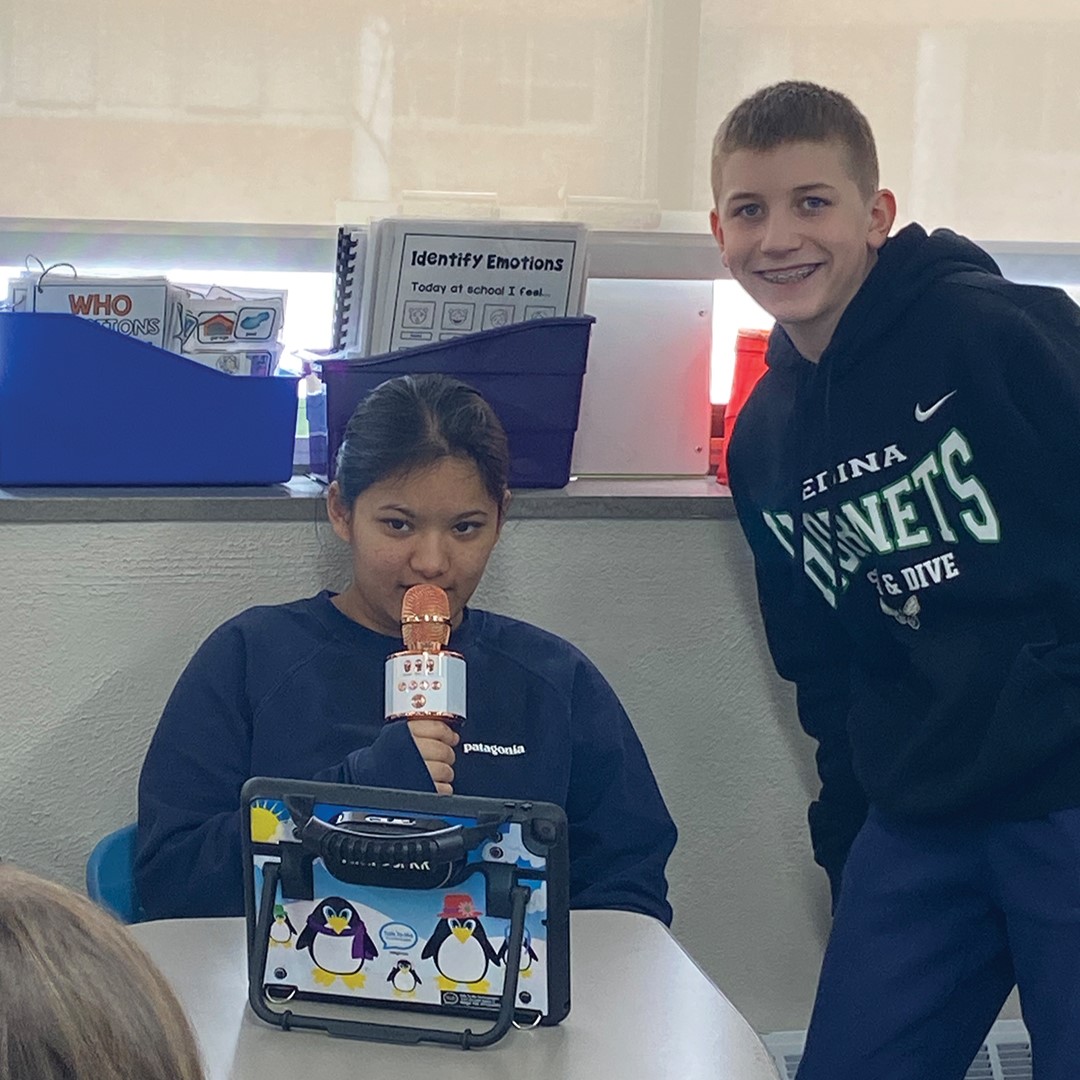
Yasa Bajracharya sings with Andy Allocco during an Edina Unified advisory class at VVMS. Photo: Jodie Mettee
At Edina High School, one unique offering is Theater for All, where neurotypical and neurodiverse peers work together to produce a drama performance. “I played Jay in ‘The Descendants,’” Charlie Carroll, a senior at EHS, says. “I had to learn a lot of lines.”
“To see him onstage, wearing a microphone, acting and singing in front of an audience—I can’t even really describe the feeling, the amazement we felt watching him do that,” says Charlie’s mom, Carrie Carroll. “A kid who, at one point, could not put two words together or make eye contact—to go onstage and sing and dance? That was something.”
With the authentic friendships of his Unified peers, Charlie has had as many hallmark high school experiences as any teen. He planned a pizza party and invited neurodivergent and neurotypical friends; he’s taken video production and ceramics classes; and he says a highlight was attending the Sweethearts Dance. “I went with friends,” he says. “We went to [dinner at] Crave.” Is he a dancer or an observer? “I like to dance.”
At EHS, “we have a lot of ideas and I’m excited to get them going,” says special education facilitator, Annie Ormiston. She’s working with students to identify other areas for Unified. A group of students has also started a Unified cheer squad. “It’s been amazing to see their leadership and passion,” says Ormiston. She hopes other sports teams, academic courses and student clubs will become Unified, too. “For students with autism, we focus a lot on the transition to life outside of high school,” she says. “Unified is a safe space where students can learn how to communicate with a variety of people and practice their skills. How can we create not just a Unified school, but a Unified world for all of our students?”
Edina Unified, Edina Public Schools; edinaschools.org and specialolympics.org.
Instagram: @edina.unified
Toneworks Music Therapy
Music therapist Lyndie Walker-Spitzer has been connecting her students with the power of music for more than 10 years. “Music therapy is a beneficial tool for change because it is so personal and motivating,” Walker-Spitzer says. She’s the owner and director of Toneworks Music Therapy, an Edina community-based provider that offers group and individual sessions in homes and schools and at its studio. “I realized I loved neurodivergent brains and the way music can create relationships with people [who] are different than us,” she says of her decision to pursue music therapy after working at a summer camp for students with autism. Music “creates paths in our bodies that allow us to open ourselves up to new learning and new possibilities.”
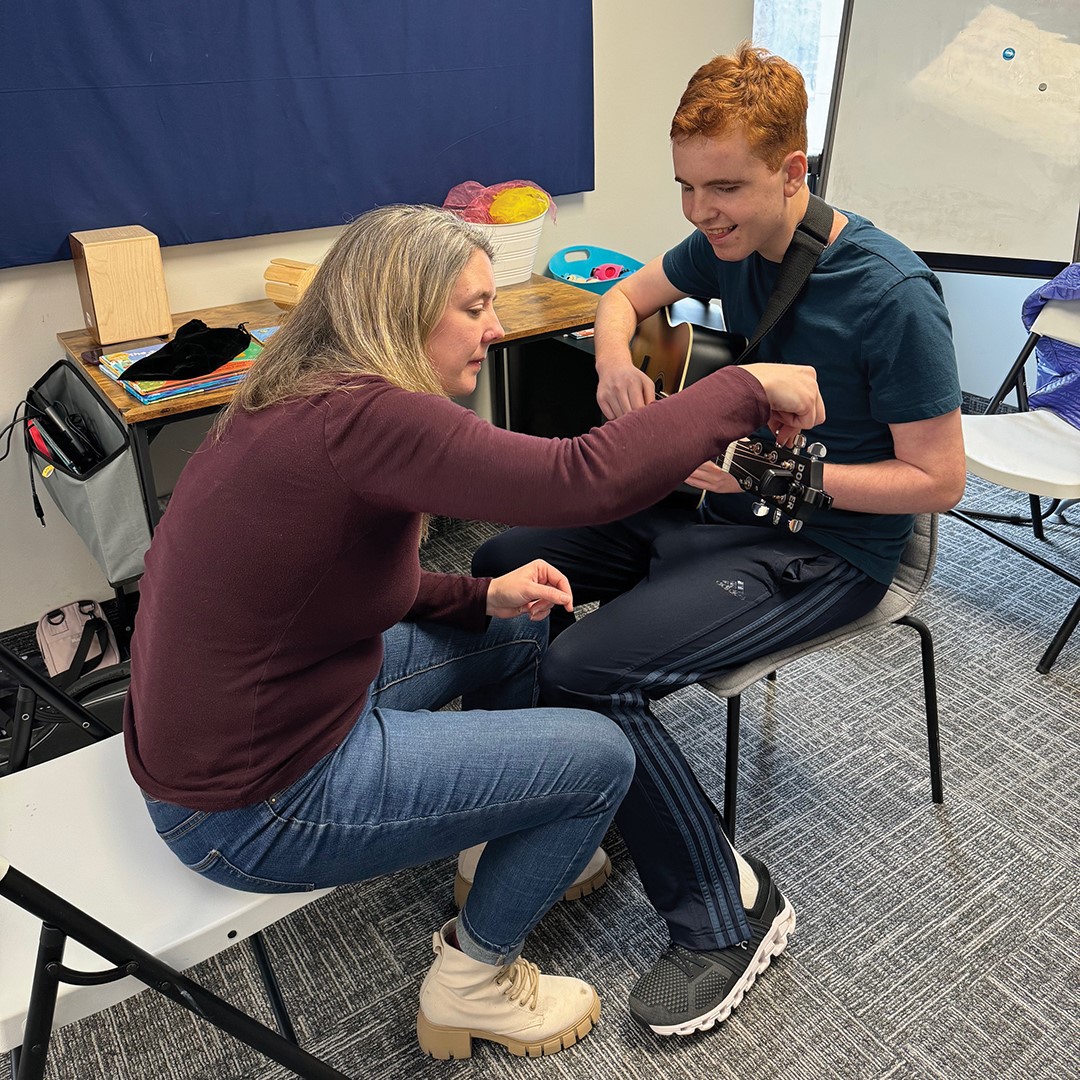
Lyndie Walker-Spitzer helps Peter Flom tune a guitar during a session at Toneworks Music Therapy. Photo: Toneworks Music Therapy
One student for whom that rings true is Peter Flom, a 21-year-old Edina resident who’s been a student of Walker-Spitzer since before Toneworks’ inception. His mom, Susan Bowman, says music therapy is perfect for Flom, whose autism limits his verbal communication. “We found that Peter really responded to music. It could help regulate and calm him, and he seemed motivated by it,” Bowman says. Flom attended music therapy with Toneworks both in school settings and one-on-one lessons, where he’s currently learning how to play the drums. “Lyndie knows what makes him tick and is able to get him motivated to keep learning,” she says, noting that music holds Flom’s attention like few other activities. His ear for detail gets to shine, too. “If someone’s playing the guitar, he can tell if it’s not perfectly in tune.”
For adult students like Flom, Toneworks has launched its therapeutic learning center (TLC), which “can be accessed as an alternative to a standard adult day center,” Walker-Spitzer says. “TLC provides a welcoming environment where individuals can foster friendships and engage in diverse communities while offering opportunities for continued personal growth.”
Toneworks Music Therapy, 5624 Lincoln Drive, Suite 280; 952.955.9500; toneworksmusictherapy.com
Dream Adaptive Skating
Adaptive sports opportunities are increasingly available in the Twin Cities for people with autism. They usually use a peer model, where an athlete with special needs is paired with a peer who provides support. One of those programs in Edina is Dream Adaptive Skating, which is run by Alex Christianson and offered through Edina Parks & Recreation for ages 5-18. “There’s a figure skating coach and myself on the ice,” Christianson says. “All skaters are paired with high school volunteers who are figure skaters or hockey players.”
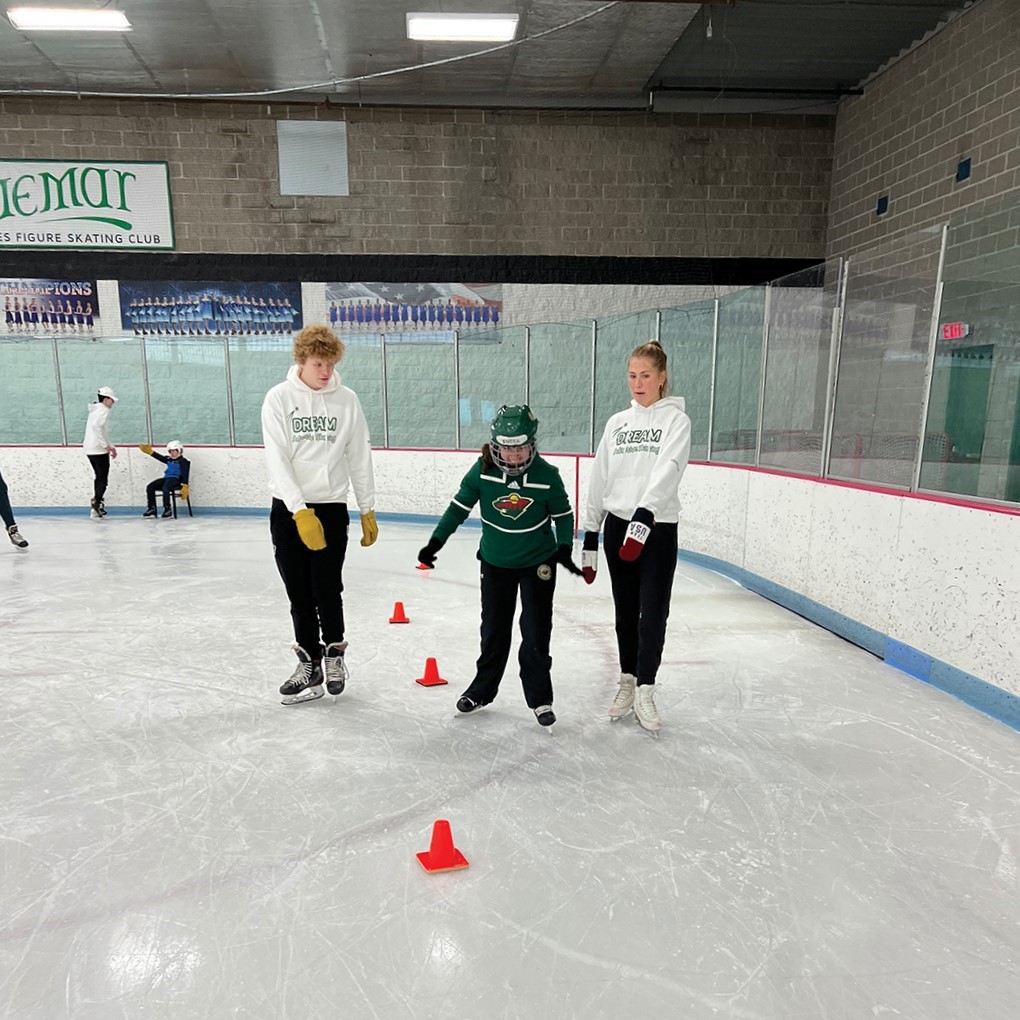
Dream Adaptive Skating celebrates its 10th year. It teaches children with visible and invisible disabilities how to skate. Photo: Edina Parks & Recreation
Christianson says the social skills the athletes practice are as important as the skating skills. “They’re working on social communication, motor and behavioral skills. Learning to skate means they can do skating ‘things’ in the community and interact with new people,” she says. When she and her volunteers work with kids with autism, they adapt their tools, using things like visual schedules and pictures. “We use different toys and gadgets as needed,” she says, “depending on each person’s sensory load. We sometimes use music, or not.”
Edina High School senior Krisalyn Cook has volunteered with Dream for several years. “I had participated in Unified programs at my school, and working with those students was one of my passions,” Krisalyn says. “Skating offers such a unique experience for kids with autism. They’re learning how to use muscles and movements that are out of the ordinary and doing it at their own pace.” She says authentic friendships are an important element of Dream. “We create connections that might not happen elsewhere. We combine two or three people who are different from each other, which shouldn’t be a barrier.”
Edina Parks & Recreation, 4801 W. 50th St.; 952.826.0367; edina.gov

